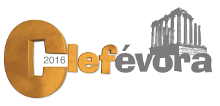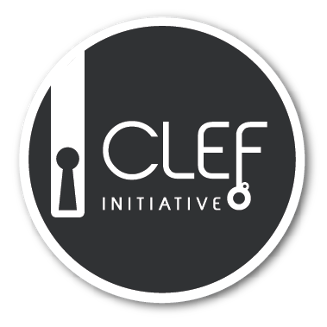Call for Labs Proposals
Researchers and practitioners from all areas of information access and related communities are invited to submit proposals for evaluation labs for consideration for inclusion in CLEF 2016. Lab proposals will be reviewed by the lab selection committee. Organizers of selected proposals will be invited to include their lab in the CLEF 2016 lab programme, possibly subject to small suggested modifications to their proposal to better suit the CLEF lab workflow or timeline.
Scope of CLEF Labs
Proposals are accepted for two different types of labs:
- Evaluation Labs that are a "campaign-style" evaluation for specific information access problems (during the twelve month period preceding the conference), similar in nature to the traditional CLEF campaign "tracks" (see 2015 Labs). Topics covered by campaign-style labs can be inspired by any information access-related domain or task.
- Labs that follow a more classical "workshop" pattern, exploring issues of evaluation methodology, metrics, processes etc. in information access and closely related fields, such as natural language processing, machine translation, and human-computer interaction.
Proposal Submission
Lab proposals must provide sufficient information to enable to be able to judge the relevance, timeliness, scientific quality, benefits for the research community, and the competence of the proposers to co-ordinate the lab. Each lab proposal should identify one or more organizers as responsible for ensuring the timely execution of the lab.
Proposals should be 3-4 pages long and should provide the following information:
- Title of the proposed lab.
- A brief description of the lab topic and goals, its relevance to CLEF and the significance for the field.
- A brief but clear statement of usage scenarios or domain to which the activity is intended to contribute, including the evaluation setup and metrics.
- Details on the lab organizer(s), including identifying the task chair(s) responsible for ensuring the running of the task. This should include details of any previous of involvement in organising or participating in evaluation tasks at CLEF or similar campaigns.
- The planned format of the lab, i.e. campaign-style ("track") or workshop.
- Is the lab a continuation of an activity from previous year(s) or a new activity?
- For activities continued from previous year(s): Statistics from previous years (number of participants/runs for each task), a clear statement on why another edition is needed, an explicit listing of the changes proposed, and a discussion of lessons to be learned or insights to be made.
- For new activities: A statement on why a new evaluation campaign is needed and how the community would benefit from the activity.
- Details of the expected target audience, i.e. who do you expect to participate in the task(s), and how do you propose to reach them.
- Brief details of tasks to be carried out in the lab. The proposal should clearly motivate the need for each of the proposed tasks and provide evidence of its capability of attracting enough participation. It is fine for a lab to have a single task, but labs often contain multiple closely related tasks.
- Expected length of the lab session at the conference: half-day, one day, two days. This should include very high level details of planned structure of the session, e.g. participant presentations, invited speaker(s), panels, etc., to justify the requested session length.
- Arrangements for the organization of the lab campaign: who will be responsible for activities within the task; how will data to acquired or created, including highlighting any IP issues that need to be addressed to enable data to be distributed to lab participants; tools or methods which will be used, e.g., how will necessary queries be created or relevance assessment carried out; any other information which is relevant to the conduct of your lab.
- If the lab proposes to set up a steering committee to oversee and advise its activities, include names, addresses, and homepage links of people you propose to be involved.
Reviewing Process
Each submitted proposal will be reviewed by the CLEF 2016 lab organizing committee. The decision will be sent by email to the responsible organizer by September 14, 2015. The final length of the lab session will be determined based on the overall organization of the conference and the number of participant submissions received by a lab. Organizers of accepted labs are expected to announce and briefly present their lab at the final session of CLEF 2015 in Toulouse on the 11th of September, 2015.
Important Dates
- Final lab proposals:
September 1, 2015 - Notification of lab acceptance:
September 14, 2015 - Labs registration opening:
November 2, 2015
Submission Details
Lab proposals (or questions) should be submitted via e-mail (either plain text or PDF format, using "CLEF labs proposal" in the subject line) to both Lab Organizing Committee Chairs:
- Craig Macdonald - craig.macdonald[at]glasgow.ac.uk
- Krisztian Balog - krisztian.balog[at]uis.no


